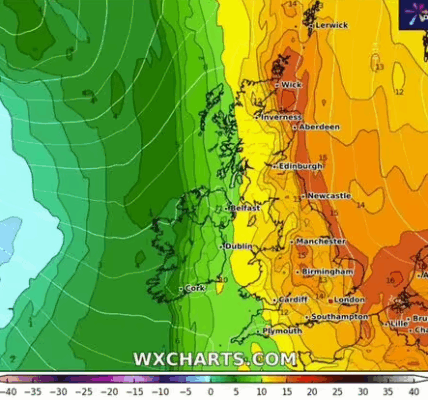EXCLUSIVE: Pension pots are feeling the strain of the tumbling stock market.

Pensions suffer horror £6,200 drop as Trump tariffs ‘ripple through savings’ (Image: Getty)
Pensions have taken a significant hit, with some savers seeing a £6,200 drop in value, as global events ripple through retirement funds. Global markets were shaken on Monday after US President Donald Trump’s new tariffs triggered a sharp downturn. The FTSE 100 fell more than 5% in early trading, while Asian shares also plunged following Friday’s dramatic sell-off on Wall Street.
For pension holders, particularly those with defined contribution schemes, this means a decrease in the value of their investments, reducing the overall value of their pension pots. The FTSE 100 is an index of the UK’s largest companies, and when it drops, the value of these stocks typically falls as well.
Chris Eastwood, founder and CEO at workplace pensions specialist Penfold, highlighted the impact on the NEST 2040 Retirement Fund, a common default fund in the UK’s largest defined contribution pension scheme. Since its peak in February, the fund has dropped by 6.2%. Mr Eastwood said: “Someone with a £100,000 pension pot — roughly the average for a 50-year-old man in the UK — could be looking at a £6,200 drop in value.” However, he noted: “Pensions are a long game — dips like this are part of the journey and not a reason to panic. But it’s a good reminder that global events do ripple through to people’s long-term savings, even if the impact isn’t felt right away.”

Pension pots will feel the strain of the tumbling stock market. (Image: Getty)
Jason Hollands, managing director of Evelyn Partners, warned that companies may issue profit warnings in the coming weeks as they model the impact of these market changes. He said: “It is hard to know how much further markets might fall before stabilising.”
Dan Coatsworth, investment analyst at AJ Bell, added: “The rapid pullback in stocks and shares over the past few days has put a dent in people’s investments, including those in the US who were meant to have benefited from Trump’s actions. Instead, his tactics have caused shockwaves in every corner of the world.”
The uncertainty in the markets is also reflected in shifting investor behaviour. For the first time this year, no US-focused funds appear among Fidelity International’s top 10 best-sellers. The data suggests a growing reluctance to maintain US exposure, with investors instead increasing allocations to cash funds and globally diversified strategies. However, some of these globally diversified funds will still have significant US allocations, meaning many investors remain indirectly exposed to US equities.
Ed Monk, associate director at Fidelity International, said: “There’s been a clear preference for globally diversified funds and European markets. However, some of these globally diversified funds will still have significant US allocations, meaning that many investors remain indirectly exposed to US equities, even if they are not consciously seeking it.”
However, experts stress that while economic shocks are inevitable, investments require a long-term strategy. As a result, they urge people not to panic or make hasty decisions in response to short-term volatility.
Don’t miss…
House prices fall for first time this year as £1,575 wiped off value of homes [INSIGHT]
Pensions expert shares 10 things you should consider before accessing your pot [EXPLAINED]
Cash ISA savers issued £6,700 alert as millions lose out on interest [ANALYSIS]
Nigel Green, CEO of deVere Group, said: “History teaches us that when others panic, opportunity is created. Savvy investors understand that volatility is part of the price you pay for superior long-term returns.”
Mr Green emphasised that recoveries often begin when sentiment is still deeply negative. He said: “Those who stay invested and act strategically during times like these are consistently the ones who reap the biggest rewards.”
However, he warned that a more tactical, precise approach is now essential.
Mr Green said: “This is not the time for complacency or guesswork. We’re entering a period where quality, diversification, and resilience will define success.
“Investors should be focusing on companies with strong fundamentals, global reach, and the ability to withstand pricing pressures. Regions less exposed to the tariff fallout could also offer compelling opportunities.
“It’s about tilting portfolios intelligently toward strength, not sitting frozen in fear.”




